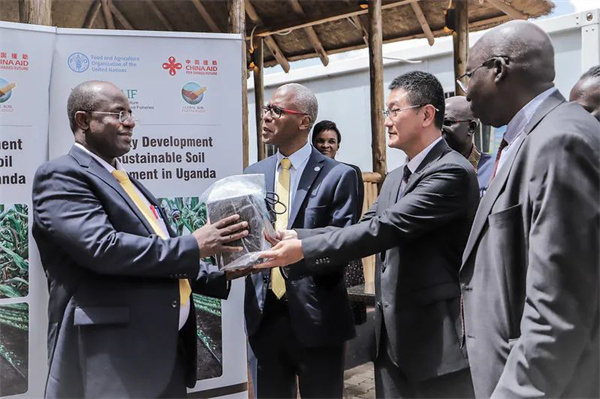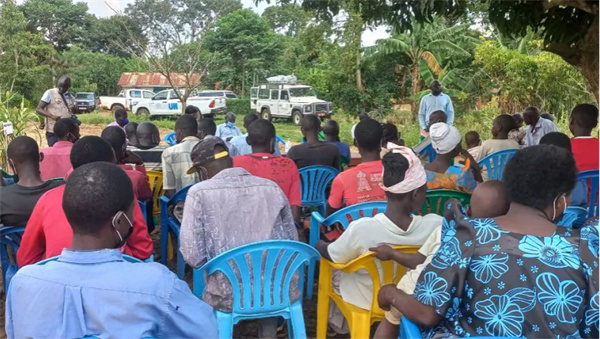CIDCA implements sustainable soil management program in Uganda via GDSSCF
Funded by China's Global Development and South-South Cooperation Fund (GDSSCF), the China International Development Cooperation Agency (CIDCA), in cooperation with the Food and Agriculture Organization of the United Nations (FAO), implemented a sustainable soil management program in Uganda from July 2020 to April 2023.

Equipment is handed over to the soil laboratory of Uganda.
Agriculture plays a vital role in the livelihoods of the people of Uganda. However, unsustainable soil management practices have led to soil degradation and reduced crop yields, a trend exacerbated in recent years by the COVID-19 pandemic and fertilizer crisis.
Co-organized by the FAO and the Ministry of Agriculture, Animal Industry and Fisheries of Uganda, the program provided equipment to Uganda's soil laboratory and improved the country's soil test capacity. Soil and fertilizer samples were collected and analyzed and a corresponding database was established, while fertilizer recommendations were made based on soil test results, crop nutrient requirements and crop yield goal. Nearly 400 farmers were trained via soil testing and fertilizer application techniques demonstrations, and over 600 researchers, business development personnel for agricultural technologies, academics, private business operators and government officials received training through online courses on soil management, whose soil-related knowledge and sustainable soil management capability were increased.

A trainer interacts with trainees on sustainable soil management.
The successful implementation of the program has effectively helped Uganda fight against the COVID-19 pandemic and fertilizer crisis, and enhanced the country's agricultural production capacity.

Follow us on WeChat
京ICP备18041594号-1
京公网安备 11010202005508号

Follow us on WeChat


